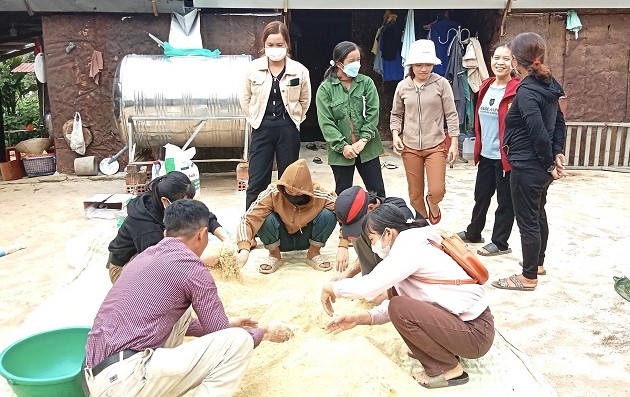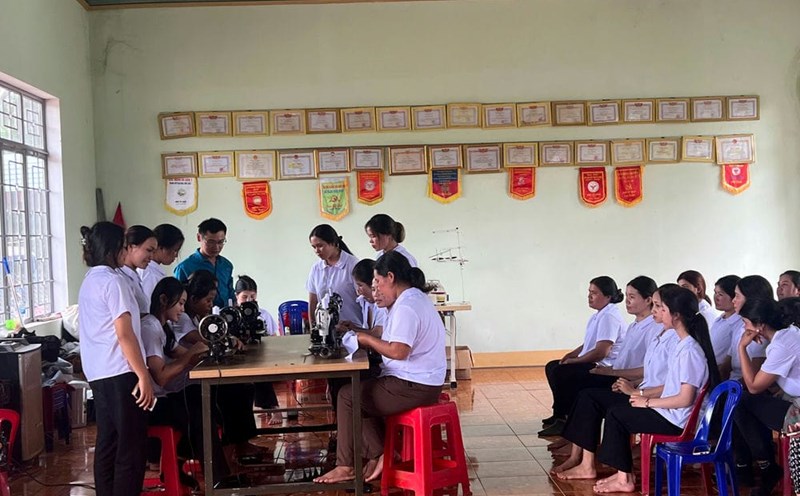Diversify vocational training
Reality shows that many districts, towns and cities in Dak Lak province have a large number of ethnic minorities living between the ages of 18 and 25.
This is a workforce that is healthy but has not received formal vocational training and does not have stable jobs in their hometown.
From the capital of the National Target Program on Sustainable Poverty Reduction, in the past 2 years, the authorities in Dak Lak province have deployed a series of vocational training courses.
Thereby, helping workers gain more knowledge, qualifications, and professional skills to apply for jobs or create their own jobs, developing the family economy.
Mr. Trinh Cong Tien - Director of the Center for Vocational Education - Continuing Education of M'Drak district - said: "The specific characteristics of the district still have many difficulties. Therefore, we choose suitable occupations so that people in the whole district can easily study and graduate to improve their income and have stable jobs."
According to Mr. Tien, occupations including civil construction, garment making, agricultural machinery repair, animal husbandry, etc. have attracted the attention and study of many people.
"To complete the course, the unit has signed contracts with many guest teachers, arranged flexible study time so that students can fully participate and access the most practical skills," Mr. Tien emphasized.

Developing local human resources
Dak Lak province currently has 18 vocational education institutions (4 colleges, 4 secondary schools, 10 vocational education centers).
In addition, there are 19 other facilities participating in vocational education activities (15 Vocational Education - Continuing Education Centers of districts, towns, cities and 4 enterprises).
The leader of the Department of Labor, War Invalids and Social Affairs of Dak Lak province emphasized: "Currently, rural workers, especially ethnic minorities, prefer to work locally, close to home. Therefore, it is very difficult for authorities to solve on-site employment for workers in this area."
According to the leader of the Department of Labor, War Invalids and Social Affairs of Dak Lak province, after 3 years of implementing the task of vocational training for rural workers, the unit has achieved many joyful results.
Most notably, the district has trained a number of rural workers with basic knowledge, skills, expertise, and techniques. Most of the graduates have created stable jobs and increased their income, improving their family life and their own income.
This process has contributed to gradually improving the quality of human resources, serving the socio-economic development goals of the locality.
The leader of the Department of Labor, War Invalids and Social Affairs of Dak Lak province shared that in the coming time, the province's functional agencies will focus on training and developing human resources in a specialized and modern direction to meet the requirements of the labor market.
In which, it is associated with the orientation and economic development needs of the province and promoting invested resources.
At the same time, the relevant agencies also promote extensive propaganda on vocational education and spread the movement "Vocational education is the first path to career creation" among young people.












